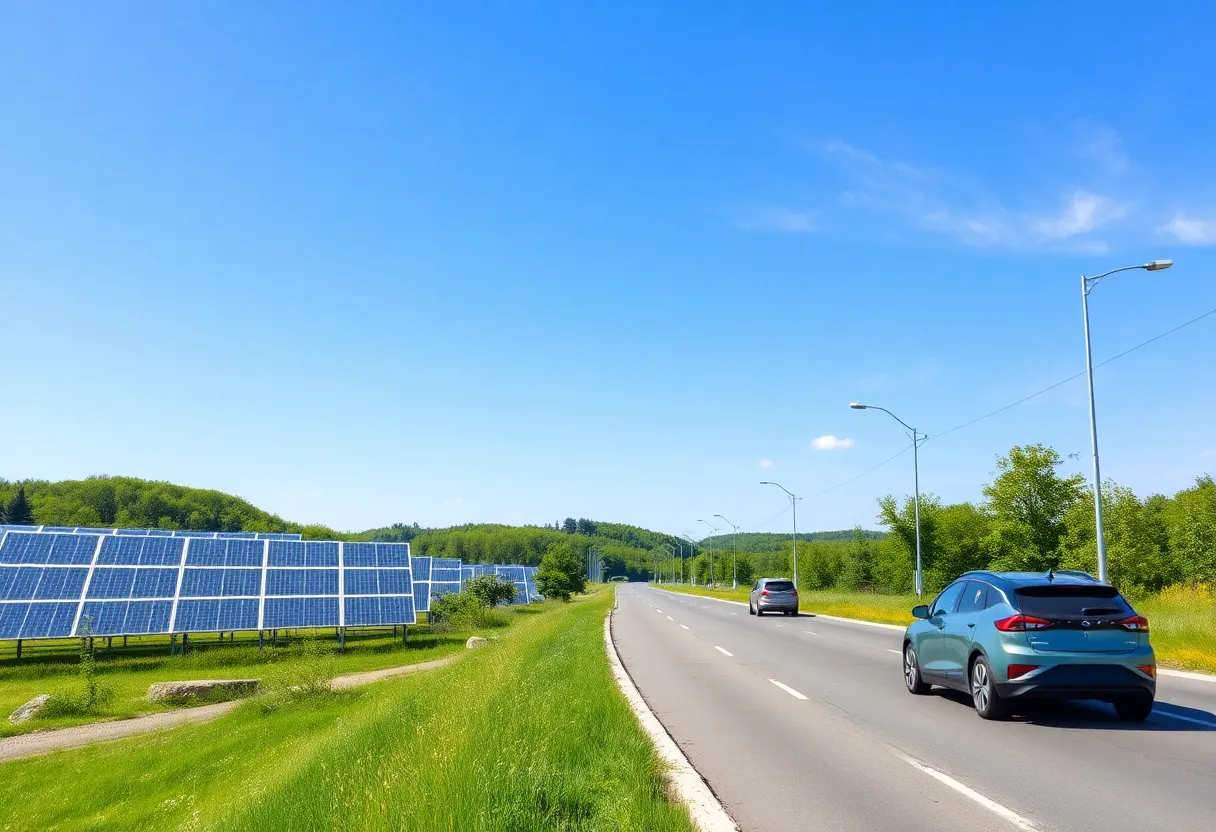News Summary
A recent ISO New England study predicts an 11% rise in electricity demand in Rhode Island by 2034, driven by the growing reliance on electric vehicles and heating systems. While renewable energy capacity, particularly solar power, is set to increase significantly, challenges remain due to reduced federal support and funding freezes. The state is committed to advancing its climate strategies amidst these obstacles, ensuring they maintain progress towards net-zero emissions by 2050 despite financial hurdles.
Rhode Island – A recent study from ISO New England has projected a notable increase in electricity demand in the region, forecasting an 11% rise in consumption by 2034. This shift marks a departure from the previous decade’s trend of declining usage. The revised forecast has been reduced from an earlier estimate of a 17% increase, reflecting a slowdown in the adoption rates of electric vehicles (EVs) and heat pumps which are contributing factors to the anticipated growth in electricity consumption.
According to the study, electricity consumption is expected to rise to 130,665 gigawatt hours by 2034, compared to 116,813 gigawatt hours estimated for 2024. While this figure remains below the 2005 peak of 136,425 gigawatt hours, it indicates a shift towards increased energy usage driven largely by the growing reliance on electric vehicles and heating systems.
In detail, summer peak demand is anticipated to increase by 68 megawatts by 2025 and by 956 megawatts by 2034. The winter heating season is projected to experience a rise of 300 megawatts in 2025 and a significant 6,529 megawatts increase by 2034. Despite these figures, the ISO New England reassures that it does not foresee issues in securing enough resources to meet the anticipated demand.
Impact of Renewable Energy Sources
The growth of solar power in New England is expected to surge by 88% over the next decade, reaching a total production capacity of 14,343 megawatts. Massachusetts is anticipated to lead in solar capacity with 6,952 megawatts. However, experts indicate that this increase in renewable energy production may not sufficiently offset the rising electricity demand from electric vehicles and heating systems.
Federal Funding Concerns
Compounding these challenges is the observed reduction in federal support for electric vehicles, heat pumps, and solar power initiatives under the current administration. As a result, the state of Rhode Island is advancing its climate strategy despite a federal funding freeze. The Rhode Island Executive Climate Change Coordinating Council has confirmed that the state will allocate $225,000 to maintain the development of its climate action strategy, which is designed to achieve net-zero emissions by 2050.
However, the federal funding freeze has led to halted programs for energy efficiency and renewable investments within Rhode Island that were estimated to impact approximately $125 million. Furthermore, the state anticipates losing $21 million in remaining federal funds that were designated for expanding electric vehicle charging infrastructure.
Current Energy Initiatives
In addition to these challenges, the Rhode Island Office of Energy Resources has placed a $32 million initiative for energy-efficient appliances and updates on hold due to the funding freeze. Meanwhile, in Georgia, the Department of Energy has committed to a direct loan of up to $670.6 million to support Aspen Aerogels in constructing a manufacturing facility that will deliver thermal barriers for over 2 million EV batteries annually.
This new facility is projected to remove more than 5,000 internal combustion vehicles from the road each year, bolstering the broader initiative of transitioning to electric vehicles. Contracts with major automakers, including General Motors, Toyota, and Audi, position Aspen Aerogels to supply necessary materials to meet new safety standards in EV manufacturing.
Conclusion
As Rhode Island faces uncertainties due to federal funding challenges, the projected increase in electricity demand underscores the need for robust infrastructure development and support for the transition to cleaner energy sources. While renewable energy initiatives are advancing, their capacity to match rising demand remains a pressing concern moving forward.
Deeper Dive: News & Info About This Topic
- Rhode Island Current: Increase in Electricity Consumption
- Wikipedia: Electricity in the United States
- Providence Journal: Trump Spending Freeze Impact
- Google Search: Rhode Island climate change goals
- Green Car Congress: Aspen Aerogels Manufacturing Facility
- Google Scholar: Renewable energy in Rhode Island
- BioAge: Energy Initiatives Overview
- Encyclopedia Britannica: Renewable Energy
- Technology Review: Aerogel and EV Battery Safety
- Google News: EV battery technology

Author: STAFF HERE PROVIDENCE WRITER
The PROVIDENCE STAFF WRITER represents the experienced team at HEREProvidence.com, your go-to source for actionable local news and information in Providence, Providence County, and beyond. Specializing in "news you can use," we cover essential topics like product reviews for personal and business needs, local business directories, politics, real estate trends, neighborhood insights, and state news affecting the area—with deep expertise drawn from years of dedicated reporting and strong community input, including local press releases and business updates. We deliver top reporting on high-value events such as WaterFire, Rhode Island International Film Festival, and Rhode Island Comic Con. Our coverage extends to key organizations like the Greater Providence Chamber of Commerce and Providence Warwick Convention & Visitors Bureau, plus leading businesses in finance and manufacturing that power the local economy such as Citizens Financial Group and Textron. As part of the broader HERE network, we provide comprehensive, credible insights into Rhode Island's dynamic landscape.





